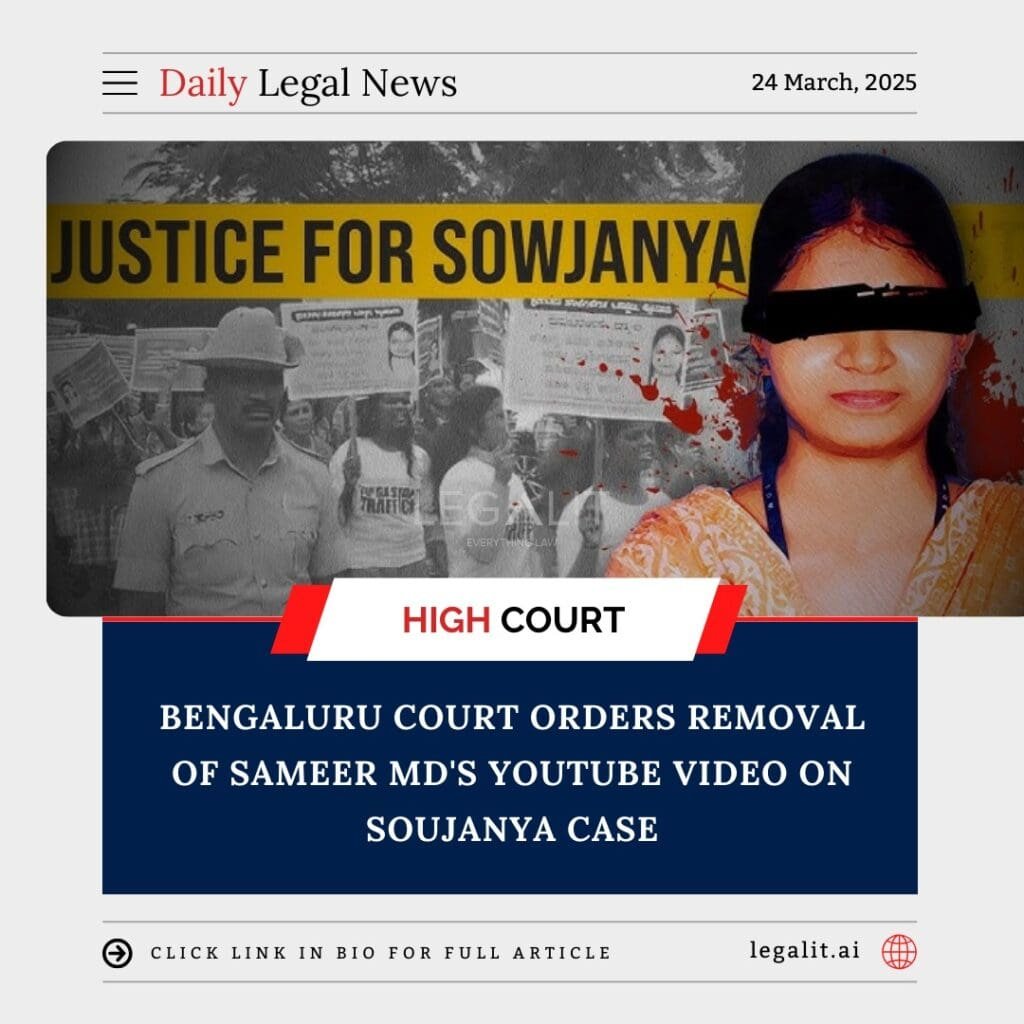
Background
A Bengaluru court has directed the removal of a YouTube video uploaded by content creator Sameer MD concerning the Soujanya case. The video, which reportedly contained sensitive content related to the case, was challenged in court on grounds of misinformation and defamation. The court’s order comes amid growing concerns about unverified claims being circulated on social media regarding high-profile criminal cases.
Court’s Rationale
- Potential Misinformation
- The court found that the video could mislead the public and interfere with the ongoing legal proceedings.
- It observed that unverified claims in such cases could spread misinformation, affecting the reputation of individuals and institutions.
- Defamation and Privacy Concerns
- The petitioner argued that the video contained defamatory remarks and violated the privacy of individuals connected to the case.
- The court held that online content creators must exercise responsibility while discussing sensitive legal matters.
- Fair Trial and Judicial Integrity
- The court emphasized the importance of maintaining judicial integrity and ensuring that public discourse does not influence legal outcomes.
- It reiterated that freedom of speech should not extend to content that could obstruct justice.
Existing Measures on Content Regulation
- IT Rules, 2021
- Under the Information Technology (Intermediary Guidelines and Digital Media Ethics Code) Rules, social media platforms are required to remove unlawful content upon receiving a legal directive.
- The rules also mandate digital platforms to act against misinformation and defamation complaints.
- Defamation and Contempt Laws
- Sections 499 and 500 of the Indian Penal Code (IPC) address defamation, making it a punishable offense.
- Courts have previously issued takedown orders for content that could be seen as prejudicial to legal proceedings.
- Judicial Precedents
- Past cases have seen courts intervene to prevent the spread of misleading content that could compromise ongoing investigations.
- In similar instances, YouTube and other platforms have been instructed to remove content deemed harmful to public order and justice.
Implications of the Order
- Content Moderation on Social Media
- The ruling reinforces the responsibility of content creators in discussing ongoing legal cases.
- It serves as a precedent for future cases where unverified claims could influence public perception.
- Impact on Digital Freedom and Regulation
- While freedom of expression is protected, courts continue to draw limits when content affects legal processes or individual rights.
- This case highlights the increasing judicial scrutiny on digital content related to criminal investigations.
- Legal Accountability for Influencers and YouTubers
- Content creators engaging in investigative discussions must ensure accuracy to avoid legal repercussions.
- The ruling signals stricter enforcement of legal boundaries for digital media influencers.
Conclusion
The Bengaluru court’s order to remove Sameer MD’s YouTube video on the Soujanya case underscores the judiciary’s stance on preventing misinformation and protecting legal integrity. While digital platforms provide a space for discussion, the ruling serves as a reminder that such discussions must remain within the bounds of legality and factual accuracy.